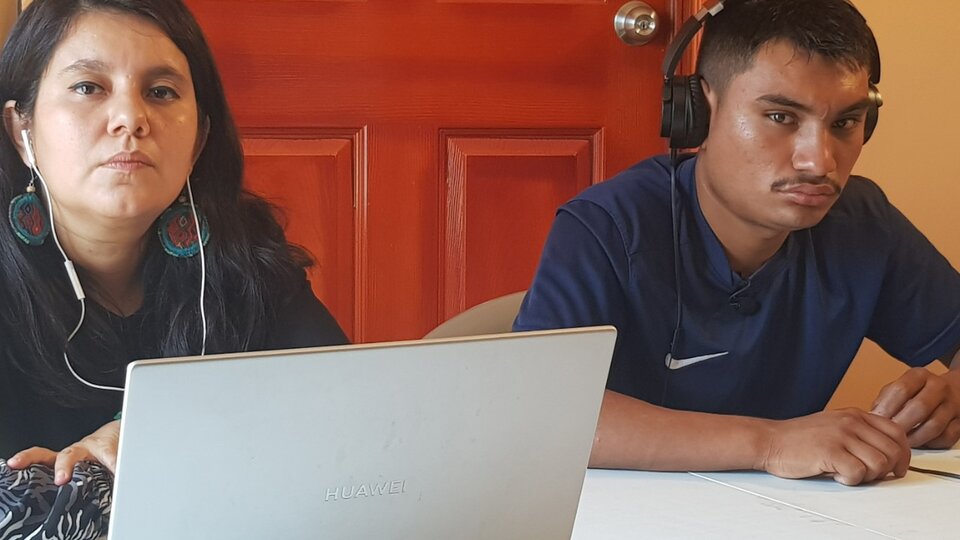
[ad_1]
For the first time, the Inter-American Court of Human Rights must rule on a complaint whose facts are developed in a context of absolute prohibition of abortion. The demand is against the Salvadoran state. It is “Manuela’s case”, fictitious name of a very poor woman, who lived in a rural area, could not read or write and who was imprisoned for the involuntary loss of her pregnancy: the doctors who treated her reported her with suspected abortion and it was finally sentenced to 30 years in prison for aggravated homicide. He died in 2010, at the age of 33, deprived of his liberty, as a result of cancer that has not been properly treated. “I want to ask for justice to be done. And that what happened to my mother must not be done anymore, ”said Santos, Manuela’s eldest son, 21, at a press conference – virtually – for journalists in the region, as well as members. organizations that support the family in the litigation. The young man was 9 years old when he was orphaned. His younger brother, 7 years old. This Wednesday and Thursday, the hearings will be held in front of the Inter-American Court, during which experts and the litigants will be present.
“This is the first case brought before the Inter-American Court to recognize that the denial of reproductive health services and the criminalization of women for obstetric events constitutes discrimination and violence against them,” said the lawyer. Catalina Martínez Coral, Regional Director for Latin America and the Caribbean Reproductive Rights, an NGO based in New York. Together with the Colectiva Feminista, from El Salvador, they filed a complaint with the IACHR in 2012. “Manuela died handcuffed to a stretcher in a public hospital,” said Sara García, of the Collective. The Inter-American Court is expected to rule this year. The decision could signify a turning point in the fight to extend the right to abortion in the region, where El Salvador, along with Nicaragua, Honduras and the Dominican Republic have the most restrictive laws.
Manuela did not have a fair defense. “They changed lawyers three times. Her father, who could not read or write, was forced to sign a document incriminating his daughter without knowing it, in which he testified that labor was induced. And that was used as evidence in the trial, ”Garcia recalls. When deprived of her liberty, Manuela was diagnosed with lymphatic cancer. “The state did not provide him with a proper diagnosis or treatment. This cancer was one of the causes of the obstetric emergency he had, ”added the feminist activist.
The “Manuela case” is not an isolated case. Between 2000 and 2019, 181 women were prosecuted for abortion or aggravated homicide in El Salvador, in cases similar to hers. “In fact, many United Nations human rights bodies have already stated that there is a direct link between the total ban on abortion and the criminalization of these women. And this is precisely why the Inter-American System decides to know an emblematic case like that of Manuela, because unfortunately there are many Manuelas in El Salvador and in the region who do not receive obstetric care when they need it, who are humiliated by medical care. personal, and reported to any suspicion of abortion, ”said lawyer Martínez Coral.
This is why litigation organizations are asking the Inter-American Court to declare the violation of human rights against Manuela and her family, and also to establish parameters not only for the state of El Salvador, but for any the region so that they do not make women. continue to be criminalized in these situations. They also warn that “the absolute criminalization of abortion generates a normative context which constitutes a form of discrimination and gender-based violence because it has a disproportionate impact on women in vulnerable situations and which stimulates the criminalization of their reproductive processes, including including obstetric emergencies ”. .
.
[ad_2]
Source link
 Naaju Breaking News, Live Updates, Latest Headlines, Viral News, Top Stories, Trending Topics, Videos
Naaju Breaking News, Live Updates, Latest Headlines, Viral News, Top Stories, Trending Topics, Videos